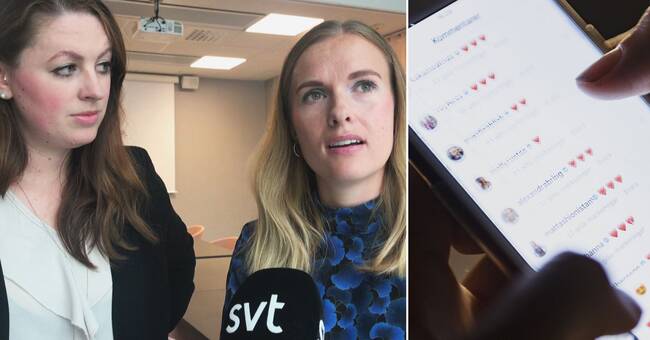In the book, the authors have reviewed a thousand posts on social media among influencers where over 50 percent contained various brands.
Influencers themselves often want others to see the industry as a profession, not a hobby.
Nevertheless, not everyone is prepared to follow the rules for advertising that apply to other work and which are regulated by, for example, the Advertising Ombudsman (RO), according to the authors of Badfluence.
As an example, they cite Bianca Ingrosso's commercial for her own makeup brand, which was condemned by RO for sexist content.
Despite this, the influencer repeated herself and the same decision was made three times in total without her changing her position.
- I think it is because they are not used to being scrutinized, the media has treated them like ordinary celebrities instead of big companies and therefore we think that they sometimes react so emotionally, says the author Julia Lundin.
A fast-growing billion-dollar industry
Some influencers have gone from zero to millions of followers in just a short time.
Today, for example, Anna Nyström has 8.4 million followers on Instagram, while Sweden's largest newspaper only has 5,552,000 million readers a week.
- It has gone very fast and society has not kept up.
Even they often see themselves as ordinary people, says Julia Lundin.
What is the difference between when, for example, TV channels advertise their own TV programs compared to when Bianca Ingrosso advertises her make-up brand?
- In part, it is about the influencer having a very close relationship with his followers, the one who follows the influencer often looks up to the person.
It's like a friend recommends a product to me, if Julia would recommend her shampoo to me that she used and thinks is fantastic, I would rather buy it than if a TV commercial recommends it, says the author Yasmine Winberg.

